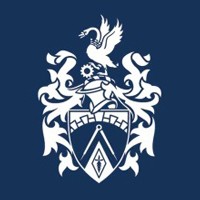fees waived
Biomedical Sciences (Human Health), BSc (Hons), with industry placement
Brunel University London, United Kingdom
Subject ranking
UK / QS 2025 38th
UK / THE 2025 40th
UK / ARWU 2024 43rd
Costs
food & rentS$17.3K / year
Entry requirements
Scholarships
More than 50 available
More than 50 available
Limited quantity
Information
Code
Intakes
Website (External)
Programmes
Information
Duration
2029
This course features a placement year between the second and third years, focusing on key questions in human health, such as factors influencing health maintenance and disease transmission. At Brunel University, students build a strong foundation in biomedical sciences during the first year, covering topics like human anatomy, biochemistry, and research skills. Progression includes specialized study in human health, examining infectious organisms, disease mechanisms, and the impact of human activities on transmission. The program offers flexibility, allowing students to switch to other biomedical pathways or pursue a general BSc in the second year.Accredited by the Royal Society of Biology, the degree ensures graduates are well-prepared for professional roles, with one year of Associate Membership upon completion for networking and industry insights. In the final year, students engage in research on cellular pathways, gene regulation, DNA repair, and immune responses, gaining practical laboratory experience. Assessment combines coursework and examinations to evaluate knowledge, problem-solving, and data analysis skills. Typical modules include Principles of Anatomy and Physiology, Genetics and Human Health, Human Pathology and Immunology, and Introduction to Data Analysis.
Modules Typical Modules include; The Human Body: Principles of Anatomy and Physiology, Genetics, Genomics and Human Health, Human Pathology and Immunology, Introduction to Data Analysis For further information please visit www.brunel.ac.uk/courses/undergraduate/biomedical-sciences-human-health-bsc
A local representative of Brunel University London in Singapore is available online to assist you with enquiries about this course.

